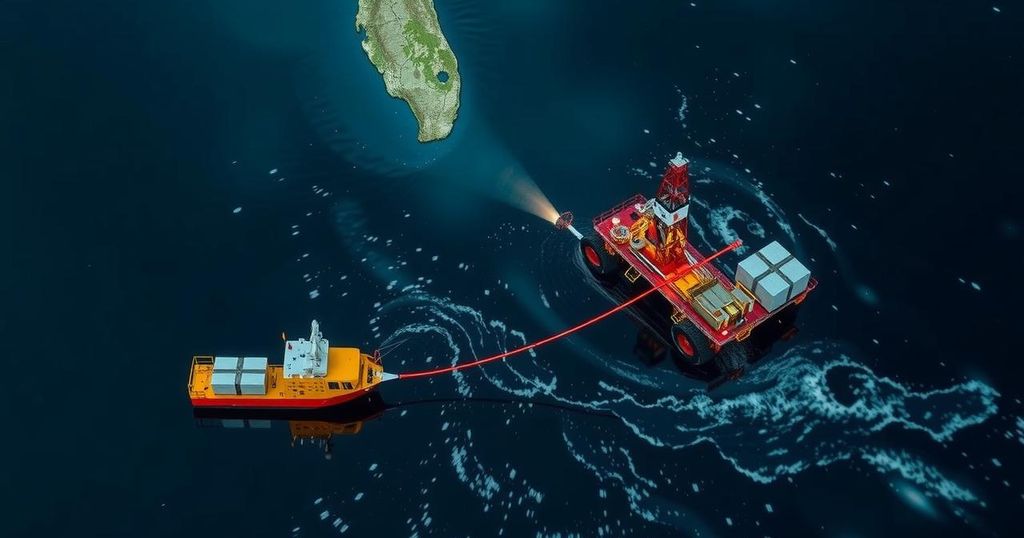Gulf Oil Operators Evacuate Ahead of Tropical Storm Rafael

As Tropical Storm Rafael approaches, Gulf of Mexico oil operators are evacuating staff from offshore platforms. BP, Chevron, Shell, and Equinor are relocating personnel to ensure safety, anticipating possible disruptions to oil and gas production. Rafael, with winds of 60 mph, could impact 4.9 million barrels of daily oil output, amid an already turbulent hurricane season and geopolitical environment.
As Tropical Storm Rafael approaches, energy operators in the Gulf of Mexico are beginning to evacuate non-essential personnel to ensure safety and maintain production levels. Major oil companies such as BP, Chevron, Equinor, and Shell are implementing precautionary measures by relocating their workers from various offshore platforms. BP has commenced evacuations from platforms including Argos, Thunder Horse, and Mad Dog, while Chevron has relocated personnel from Big Foot and Petronius. Shell is also transferring workers from its Appomattox, Vito, and Enchilada-Salsa platforms. Equinor has opted to fully shut down production in light of the storm’s threat. Tropical Storm Rafael, currently with winds of 60 mph, may strengthen to hurricane status as it progresses toward Cuba. However, the National Hurricane Center indicates it might diminish before reaching the U.S. Gulf Coast. The storm poses significant risks to the Gulf’s oil production capacity, with estimates suggesting a potential disruption of approximately 4.9 million barrels of daily oil production and 6.39 billion cubic feet of natural gas. Rafael is notably the 17th named storm of the Atlantic hurricane season and the tenth since late September, contributing to heightened market concern following earlier storms this season. The current geopolitical climate, including the U.S. election cycle and ongoing tensions in the Middle East, further complicates market reactions. Oil prices reflect these tensions, with West Texas Intermediate (WTI) and Brent crude oil experiencing increases in trading. As Rafael’s potential impact looms, its implications for the oil and gas sector continue to evolve. In summary, the combination of natural and geopolitical factors surrounding Tropical Storm Rafael is intensifying challenges for the Gulf of Mexico oil operators. The evacuations and cautious measures taken by leading companies underscore the industry’s proactive response to the unpredictable nature of storm activity in the region.
The Gulf of Mexico is a crucial area for oil and gas production in the United States. With numerous oil platforms operated by major corporations, the region is frequently threatened by tropical storms and hurricanes during the Atlantic hurricane season. These weather events can severely disrupt operations and impact energy supplies. The 2023 hurricane season has been particularly notable, with a high number of named storms, influencing market stability and oil prices.
In conclusion, the proactive evacuations undertaken by oil operators in the Gulf of Mexico ahead of Tropical Storm Rafael exemplify the industry’s readiness to face climatic challenges. The potential disruptions to both oil and natural gas production underscore the storm’s significance in an already turbulent geopolitical landscape, thereby affecting energy prices and market stability.
Original Source: oilprice.com






